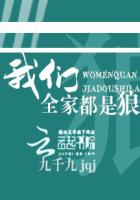The rich man can go from here to England whenever he feels inclined, the legs of the other are by an invisible fatality prevented from carrying him beyond certain narrow limits. Neither rich nor poor as yet see the philosophy of the thing, or admit that he who can tack a portion of one of the P. and O. boats on to his identity is a much more highly organised being than one who cannot. Yet the fact is patent enough, if we once think it over, from the mere consideration of the respect with which we so often treat those who are richer than ourselves. We observe men for the most part (admitting, however, some few abnormal exceptions) to be deeply impressed by the superior organisation of those who have money. It is wrong to attribute this respect to any unworthy motive, for the feeling is strictly legitimate and springs from some of the very highest impulses of our nature. It is the same sort of affectionate reverence which a dog feels for man, and is not infrequently manifested in a similar manner.
We admit that these last sentences are open to question, and we should hardly like to commit ourselves irrecoverably to the sentiments they express; but we will say this much for certain, namely, that the rich man is the true hundred-handed Gyges of the poets. He alone possesses the full complement of limbs who stands at the summit of opulence, and we may assert with strictly scientific accuracy that the Rothschilds are the most astonishing organisms that the world has ever yet seen. For to the nerves or tissues, or whatever it be that answers to the helm of a rich man's desires, there is a whole army of limbs seen and unseen attachable; he may be reckoned by his horse-power, by the number of foot-pounds which he has money enough to set in motion. Who, then, will deny that a man whose will represents the motive power of a thousand horses is a being very different from the one who is equivalent but to the power of a single one?
Henceforward, then, instead of saying that a man is hard up, let us say that his organisation is at a low ebb, or, if we wish him well, let us hope that he will grow plenty of limbs. It must be remembered that we are dealing with physical organisations only. We do not say that the thousand-horse man is better than a one-horse man, we only say that he is more highly organised and should be recognised as being so by the scientific leaders of the period. A man's will, truth, endurance, are part of him also, and may, as in the case of the late Mr. Cobden, have in themselves a power equivalent to all the horse-power which they can influence; but were we to go into this part of the question we should never have done, and we are compelled reluctantly to leave our dream in its present fragmentary condition.
A NOTE ON "THE TEMPEST"
Act III, Scene I
The following brief essay was contributed by Butler to a small miscellany entitled LITERARY FOUNDLINGS: VERSE AND PROSE, COLLECTEDIN CANTERBURY, N.Z., which was published at Christ Church on the occasion of a bazaar held there in March, 1864, in aid of the funds of the Christ Church Orphan Asylum, and offered for sale during the progress of the bazaar. The miscellany consisted entirely of the productions of Canterbury writers, and among the contributors were Dean Jacobs, Canon Cottrell, and James Edward FitzGerald, the founder of the PRESS.















